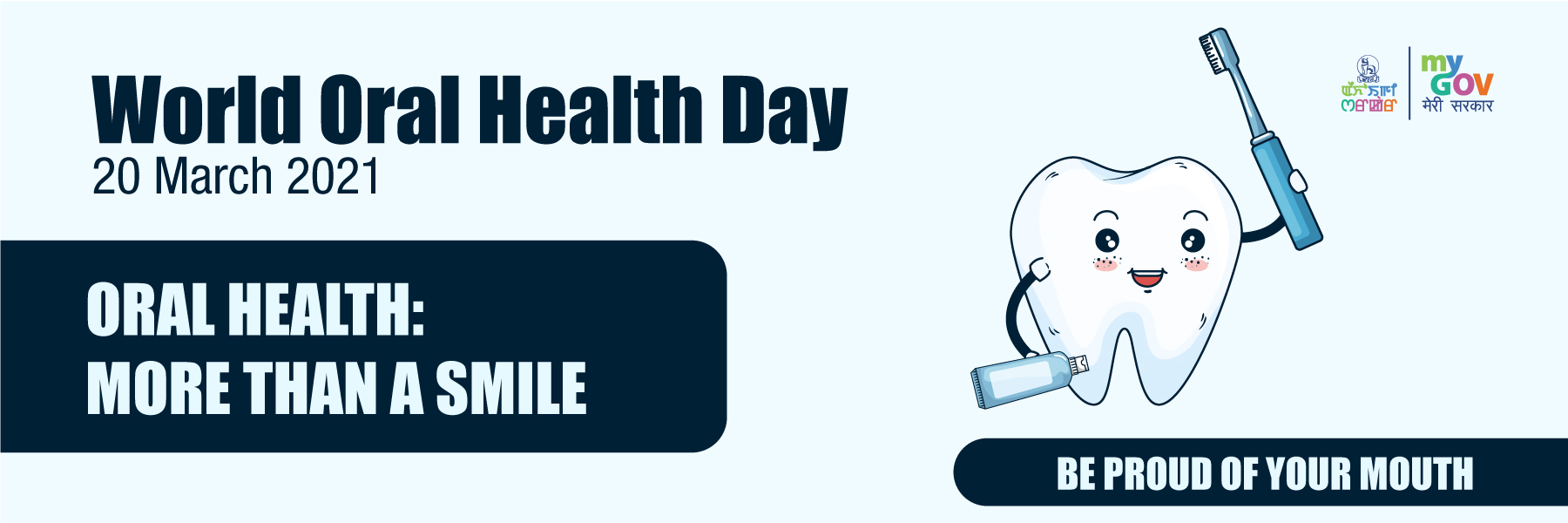Oral Health: More than a Smile

What is the thing that nine out of ten doctors always agree on but there is always that one doctor who never seems to agree? We are, of course, talking about our teeth. So, even though all the dentists can’t agree on toothpaste, they do seem to agree that teeth and our overall oral health play an important role in a healthy individual. In all seriousness, raising awareness about oral health has become necessary. Your teeth are like your fingerprint: They’re uniquely yours. This is why dental records are sometimes used to identify human remains. Even identical twins don’t have identical teeth. Our oral health also includes our gums and our teeth are like icebergs. About a third of each tooth is underneath your gums. This is why keeping your gums healthy is as important as making sure your teeth are well cared for. The increase of processed foods in our eating habits -and the huge amounts of processed sugar content they have- has led to an increase in oral issues among the masses, especially among children. Our mouth is home to more than 200 bacterias, though mostly harmless, when these bacterias interact with the sugar and acids found in the processed food and sugary drinks, they can cause tooth decay.
Our oral health is much more important than we may realize. Teeth not only are the first step to us digesting our food but they also play an important first step in social interaction. A good smile needs a good set of teeth. But our oral health tells us more about our body than just our smile. Frequent oral health issues could be a signal of a different underlying issue. Conditions like diabetes, affect your oral health. By reducing the body’s resistance to infection, diabetes puts your gums at risk. Gum disease appears to be more frequent and severe among people who have diabetes. Oral problems, such as painful mucosal lesions, are common in people who have HIV/AIDS. Worsening oral health is seen as Alzheimer’s disease progresses. But Oral health can not only be a symptom of other conditions but it also can lead to other diseases. The most obvious problems would be deteriorating teeth and gum. Gum disease can cause patients to have loose teeth, cavities, infections, and other problems. Not caring for your teeth properly can cause you pain and ultimately loss of teeth. However, there are other serious conditions that oral health can be a reason. The human body is composed of a complex system that is interconnected with other parts. Because of the way the human body is made, one area of the body can have an impact on different parts of the body. Endocarditis is an infection of the inner lining of your heart chambers or valves (endocardium) that typically occurs when bacteria or other germs from another part of your body, such as your mouth, spread through your bloodstream and attach to certain areas in your heart. Certain bacteria in your mouth can be pulled into your lungs, causing pneumonia and other respiratory diseases.
Now, reading the paragraph above can make anybody scared and anxious. However, the old adage prevention is better than cure applies more here than anywhere else. Whatever the conditions and issues, these are the things an individual has to go through, if they don’t take care of their oral health. And taking care of our oral health is quite simple and comes down to basic habits and routines. Brushing our teeth twice a day after waking up and before sleeping, will take care of most oral issues. We should take care of our tongue as well. Plaque can also build up on your tongue. Not only can this lead to bad mouth odor, but it can lead to other oral health problems. Gently brush your tongue every time you brush your teeth. The way you brush is equally important, in fact, doing a poor job of brushing your teeth can be almost as bad as not brushing at all. Take your time, moving the toothbrush in gentle, circular motions to remove plaque. Choosing the right kind of brush and brushing gently with soft hands is equally important. For the vast majority of people, a soft-bristled toothbrush will be the most comfortable and safest choice. Depending on how vigorously you brush your teeth and the strength of your teeth, medium- and hard-bristled brushes could damage the gums, root surface, and protective tooth enamel. Another thing of note is choosing a toothpaste with fluoride. It’s d recommended by dentists and is the ingredient you should be looking for while buying toothpaste. Whitening power and flavour should be secondary decisions. Flossing is something that is not talked about enough in India. Flossing is not just for getting those little pieces of food or vegetable that may be getting stuck in between your teeth but it also stimulates the gums, reduces plaque, and helps lower inflammation in the area. Just once a day is enough to reap the benefits. Little changes in eating habits can also improve our oral health. We should limit sugary and acidic foods. This sugar converts into acid in the mouth, which can then erode the enamel of your teeth. These acids are what lead to cavities. Drinking water after such foods and after every meal can wash out some of the negative effects of sticky and acidic foods and beverages in between brushes. A good addition to our brushing cabinet would be a mouthwash. It may seem a bit over the top but mouthwash helps in reducing the amount of acid in the mouth, cleans hard-to-brush areas in and around the gums, and remineralize the teeth.
The path to healthy teeth is not a life-altering path, but simple decisions, habits, and routines. Just like in life success is built on the foundation of good habits, good oral health is also achieved by forming good dental practices. You don’t need to change your complete lifestyle but just make a few minor additions to it. The huge benefits far outweigh the minor inconveniences. Yes, it may add a few more minutes in the bathroom, but we can promise you it will reduce hours at dental hospitals.





